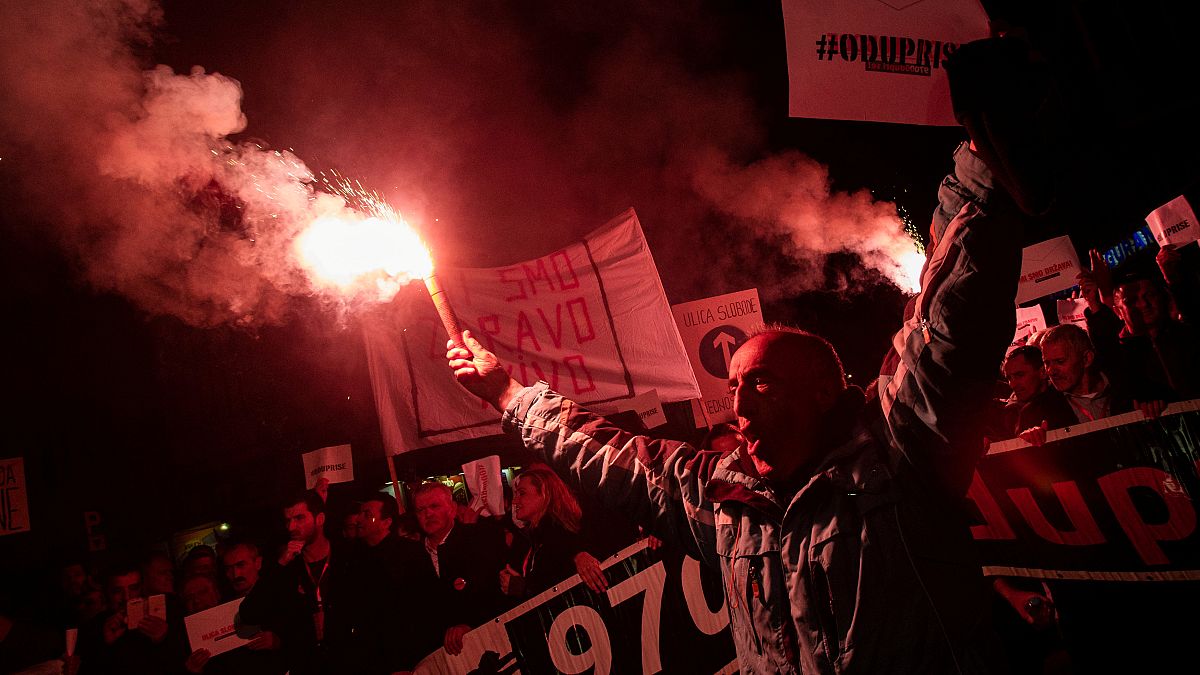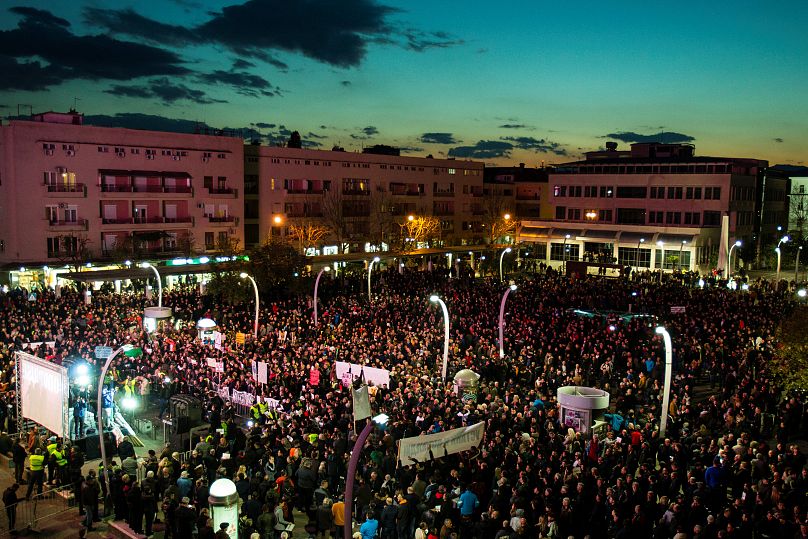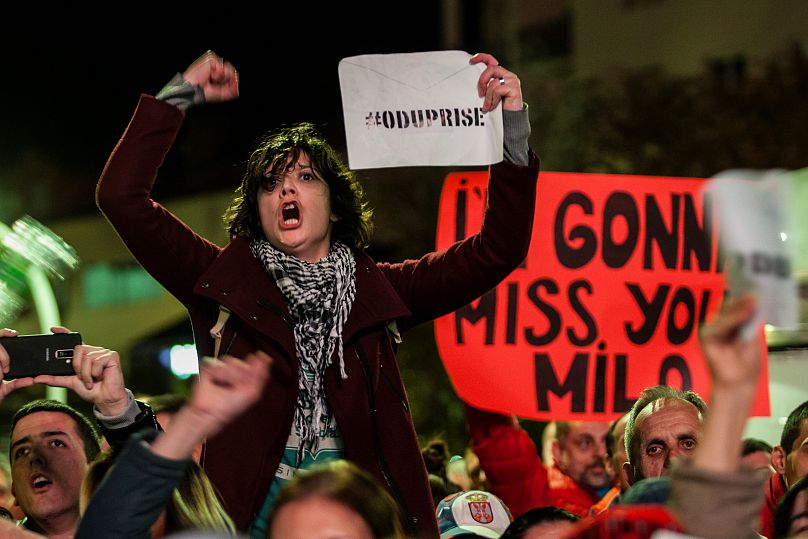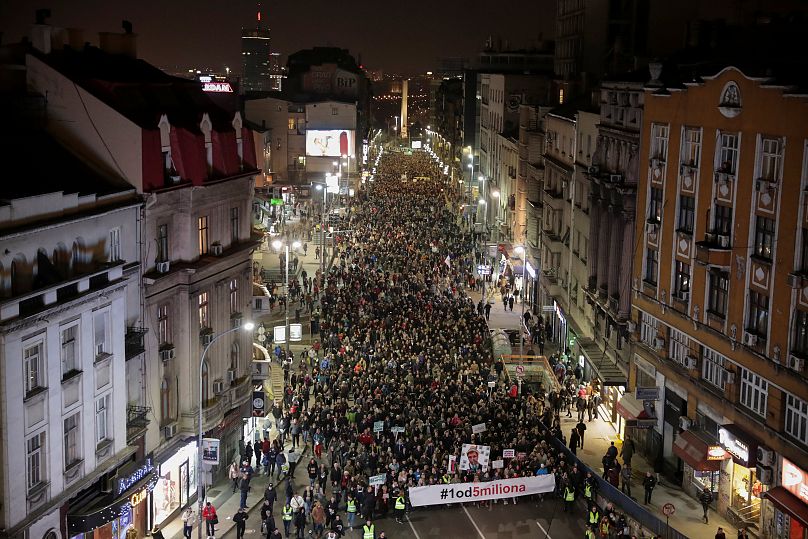The Balkans have been bombarded with political protests of late as thousands marched in Serbia's capital of Belgrade and Montenegro's capital of Podgorica on Saturday.
For the fourth consecutive week, thousands gathered in Montenegro's capital Podgorica to call on President Milo Đukanović to resign over alleged corruption and abuse of office.
The small Adriatic country, with a population of around 620 thousand, is a NATO member and candidate for European Union membership but has not yet joined the bloc due to wide-spread corruption.
The Montenegrin protestors are demanding the resignations of Đukanović, his prime minister Duško Marković, the Supreme State Prosecutor Ivica Stanković, and the Montenegrin chief prosecutor for organized crime, Milivoje Katnić.
Civic activists and journalists, who say they are not affiliated with political parties, marched through the centre of the city chanting "Milo thief".
Montenegrin opposition politicians have distanced themselves from the protests in recent weeks, after initially supporting the demonstrations.
Marija Backovic, a teacher from Podgorica, said she was protesting for a better Montenegro. "We are not the danger for this country ... those that are destroying it for 30 years are the real danger," she told the crowd on Saturday according to Reuters.
The rallies started after Dusko Knezevic, a former ally of Đukanović, accused him and his ruling Democratic Party of Socialists (DPS) of corruption involving murky financial deals.
According to Reuters, both Đukanović and the DPS have denied the allegations and said the protests are legitimate unless they turn violent.
Balkans on the brink?
The Balkans have been bombarded with political protests of late as thousands marched in Serbia's capital of Belgrade for the 13th straight week against the autocratic rule of President Aleksandar Vucic and his ruling Serbian Progressive Party (SNS).
Demonstrators carried a banner reading "1 of 5 Million" after Vucic previously argued that he would not give in to criticism even if five million people objected.
Serbia is Montenegro's larger neighbour and a fellow ex-Yugoslav republic.
To the north, several hundred Croatian journalists also took to the streets in the capital Zagreb against a wave of lawsuits filed against them, which they argue amounts to an attempt to censor the freedom of the press in the ex-Yugoslav nation.
The protest in Zagreb was organized by the Croatian Journalists' Association (HND) to highlight the threat posed by what they say are more than 1,100 lawsuits filed against journalists and media outlets.
The protesters marched through downtown Zagreb blowing whistles and playing the drums demanding immediate change.
Hrvoje Zovko, the leader of the HND, told those gathered for the march the Croatian government was "behaving ignorantly... and destroying journalism".
Đukanović's post-Yugoslavia rise
The former Yugoslavia was a republic located in central and Southeastern Europe that existed from its foundation in the aftermath of World War I until its dissolution in 1992 amid the Yugoslav Wars. Its makeup included the modern day countries of Bosnia and Herzegovina, Croatia, North Macedonia, Montenegro, Serbia, Kosovo and Slovenia.
Đukanović, 57, has dominated Montenegrin politics for over 30 years, either serving as a prime minister or president for most of the period since independence in 1991.
In 1996, Đukanović turned against Serbian leader Slobodan Milošević, abandoning the traditional joint Serbian and Montenegrin vision in favour of an independent Montenegro.
Đukanović oversaw the conversion of the Federal Republic of Yugoslavia into the State Union of Serbia and Montenegro and Montenegro's increasing separation from Serbia under his leadership, culminating in victory in the May 2006 independence referendum.
Both Montenegro and Serbia are seeking to join the European Union but have been told they must root out organised crime, corruption and nepotism and reduce bureaucracy before they can become members of the bloc.
Watch protests from the Montenegrin capital of Podgorica in the above video player



